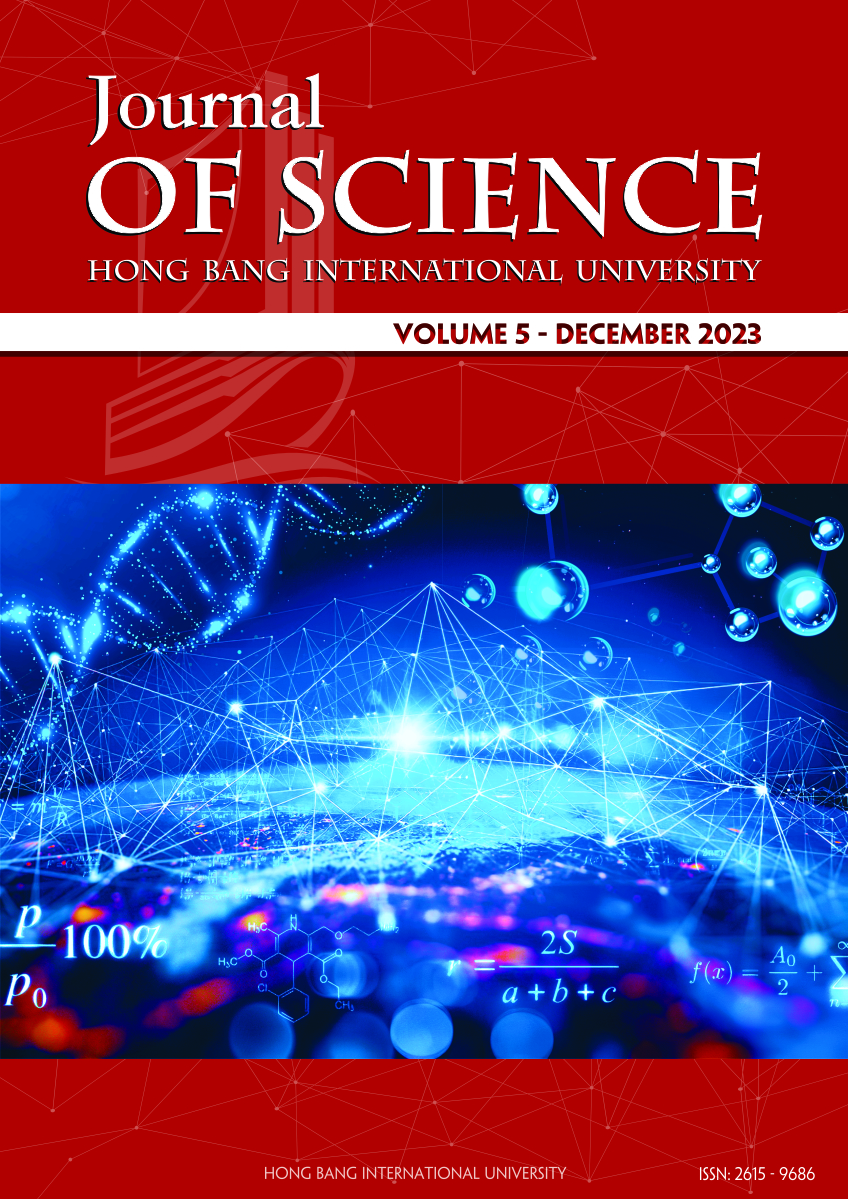Responsible tourism - Pathway to realizing sustainable development: Introduction to responsible tourism and its implementation in the ASEAN
Các tác giả
DOI: https://doi.org/10.59294/HIUJS.VOL.5.2023.548Từ khóa:
Du lịch có trách nhiệm, du lịch bền vững, phát triển bền vữngTóm tắt
The concept of sustainable tourism first emerged in 1992. After more than 30 years on a journey towards establishing sustainable values, we have shown signs of perplexity in various aspects, focusing on issues such as: whose responsibility it is, how it should be implemented, and how it can be measured. Although each country has demonstrated efforts to minimize the impact of tourism on life across three dimensions: economic, environmental, and social. It must be acknowledged that these relentless efforts reflect a high sense of responsibility from governments and organizations. However, it seems the process of protecting the environment and human life is weaker than the rate of tourism development. We need to clarify more about who is responsible and how in this global campaign. Responsible tourism emerged in 2002 and became stronger after the COVID-19 pandemic as a global revolution for the tourism industry. Utilizing qualitative research methods: data collection and processing, case study, observation, and interviewing, this article (the first part) delves into the core aspects of responsible tourism as a strategic direction for achieving sustainability in the tourism sector. Furthermore, the paper summarizes the application of Responsible Tourism in some Southeast Asian countries in recent times.
Abstract
The concept of sustainable tourism first emerged in 1992. After more than 30 years on a journey towards establishing sustainable values, we have shown signs of perplexity in various aspects, focusing on issues such as: whose responsibility it is, how it should be implemented, and how it can be measured. Although each country has demonstrated efforts to minimize the impact of tourism on life across three dimensions: economic, environmental, and social. It must be acknowledged that these relentless efforts reflect a high sense of responsibility from governments and organizations. However, it seems the process of protecting the environment and human life is weaker than the rate of tourism development. We need to clarify more about who is responsible and how in this global campaign. Responsible tourism emerged in 2002 and became stronger after the COVID-19 pandemic as a global revolution for the tourism industry. Utilizing qualitative research methods: data collection and processing, case study, observation, and interviewing, this article (the first part) delves into the core aspects of responsible tourism as a strategic direction for achieving sustainability in the tourism sector. Furthermore, the paper summarizes the application of Responsible Tourism in some Southeast Asian countries in recent times.
Tài liệu tham khảo
[1] Raga, J., Research and Innovation in Tourism Industry. Burlington, Canada: Society Publishing, 2017.
[2] Jiawei Lia. Responsible Touris Management. A Measurement Framework for Socially Sustainable Tourist Behaviour, Edward Elgar Publishing. https://jrtm.org/, Volume.2, 18-31, 2022.
DOI: https://doi.org/10.47263/JRTM.02-01-03[3] World Economic Forum. The Global Risks Report 2021: 16th Edition, Weforum. Org. Available at: http://www3.weforum.org/docs/WEF_The_Global_Risks_Report_2021.pdf, 2021.
[4] Cheer, J. M; Ting, H. & Leong, C.M. Responsible Touris Management. Responsible Tourism: A New Era of Responsibility? Edward Elgar Publishing. https://jrtm.org/, Volume.1, 1-17, 2021.
DOI: https://doi.org/10.47263/JRTM.01-01-01[5] Um, J., & Yoon, S., “Evaluating the Relationship Between Perceived Value Regarding Tourism Gentrification Experience, Attitude, And Responsible Tourism Intention”, Journal of Tourism and Cultural Change, https://doi.org/10.1080/14766825.2019.1707217. 1-17, 2020.
DOI: https://doi.org/10.1080/14766825.2019.1707217[6] Gibbons, M., Limoges, C., Nowotny, H., Schwartzman, S., Scott, P., & Trow, M. The New Production of Knowledge: The Dynamics of Science and Research in Contemporary Societies. SAGE Publications, 1994.
[7] Ting, H., Jean, L. X., Meng, L. C., Cheah, J. H., & Cheer, J. M., “Editorial – responsible tourism: A call to action for turbulent times”, Asian Journal of Business Research, 10(2), ix–xxi. https://doi.org/10.14707/ajbr.200080, 2020.
DOI: https://doi.org/10.14707/ajbr.200080[8] Lenny Yusrinia, Nhem Sochea; Ann Suwaree Ashton; Ngo Tuyet Diem Khanh; Rasmee Islam; Santi Rahmawati; Veasna Ky; Andrea Le Ta Hoang Nhi; Sharifah Nurafizah Syed Annuar; Hiram Ting. Responsible Touris Management. An Outlook on Responsible Tourism in Southeast Asia. Edward Elgar Publishing. https://jrtm.org/, Volume.2, 58-78, 2022.
DOI: https://doi.org/10.47263/JRTM.02-01-06[9] International Conference on Responsible Tourism in Destinations. Cape Town Declaration on Responsible Tourism - Responsible Tourism Partnership. Retrieved from https://responsibletourismpartnership.org/cape-town-declaration-on-responsible-tourism, 2002.
[10] Manente, M., Minghetti, V., & Mingotto, E. Responsible Tourism and CSR: Assessment Systems for Sustainable Development of SMEs in Tourism. Switzerland: Springer, 2014.
DOI: https://doi.org/10.1007/978-3-319-06308-9[11] Khew, Carolyn. Current measures against littering in Singapore. The Straits Times, Retrieved from https://www.straitstimes.com/singapore/environment/current-measures-against-littering-in-singapore, 2015.
[12] Jie Min Hoa; Kim-Lim Tanb. Responsible Touris Management. The Role of Millennial Tourists in Promoting Responsible Tourism: A Case in Singapore Edward Elgar Publishing. https://jrtm.org/, (Volume.1, 46-60), 2021.
[13] The Edge Malaysia. The Roots & Shoots Malaysia Award promotes volunteerism in youths. Retrieved from https://www.optionstheedge.com/topic/culture/roots-shoots-malaysia-award-promotes-volunteerism-youths, 2019, April 29.
[14] Sien Leong Liew; Launnah Ebo Maningo; Aung Si Kyaw; Tummapussorn Athapinyaprapakorn; Lo Thi Tuyet. Responsible Touris Management. The Best Practices of Youth in Responsible. Tourism: Insights from Malaysia, Myanmar, Philippines, Thailand, and Vietnam. Edward Elgar Publishing. https://jrtm.org/, Volume.2, 73-89, 2022.
DOI: https://doi.org/10.47263/JRTM.02-02-05[15] Nguyen, Q., & Malesky, E. Fish or steel? New evidence on the environment-economy trade-off in developing Vietnam. World Development, 147(2021), 1–23. https://doi.org/10.1016/j.worlddev.2021.105603, 2021.
DOI: https://doi.org/10.1016/j.worlddev.2021.105603[16] Capilano University. (n.d.). CBT Vietnam Project. Retrieved from http://www.cbtvietnam.com/cbt-vietnam-1#what-we-do-1
[17] Thipsingh, S., “Creating a Network of Youth in Sustainable Tourism Development in the Greater Mekong Sub-region Case study: Nakhon Phanom, Thailand and Khammouan, Laos PDR”, Procedia - Social and Behavioral Sciences, 195(2015), 1573–1582. https://doi.org/10.1016/j.sbspro.2015.06.194/, 2015.
DOI: https://doi.org/10.1016/j.sbspro.2015.06.194Tải xuống
Tải xuống: 257











